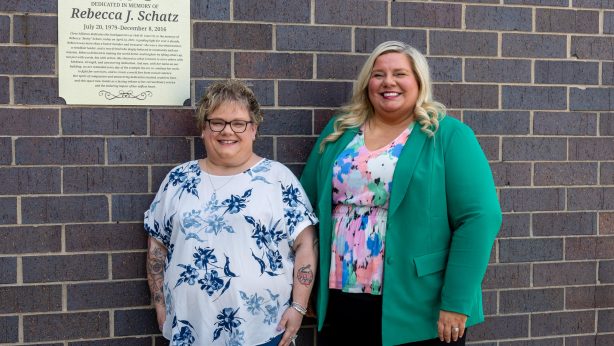8 Things You Can Do to Support Survivors of Sexual Violence
Society often fails to offer survivors of sexual harm the support they deserve. In this blog post, we’ll explore eight ways to help create a world where survivors are believed, empowered, and able to reclaim safety and dignity. Each action, big or small, sends a powerful message of solidarity. Let’s delve into practical ways to make a difference.
1. Messages of Hope

Survivors of sexual violence are exposed to a lot of negative messages and attitudes about what happened to them. These come from society, authorities, and their close community—even family and friends. Some common harmful sentiments include blaming victims for the assault, downplaying the seriousness of sexual violence, disbelieving and accusing survivors of lying, and fueling shame and embarrassment felt by survivors. You can counter these destructive messages with positive and supportive ones!
Sexual violence is tragically common, which means survivors are likely in your circle and will see your signs of support and encouragement. It can be as simple as displaying buttons or stickers with words of support, speaking up when you hear something hurtful to survivors, and reposting survivor-affirming social media content on your accounts. Follow Clove Alliance on Facebook and Instagram for great posts to share.
2. Attend Events and Fundraisers

Showing up for events that grow awareness about sexual violence, support survivors, or raise money to provide services is a great way to show survivors you care. There are likely diverse options in your area; from art shows to 5k runs, bingo nights to poetry readings, book signings to galas—the list could go on and on!
Your state anti-sexual violence coalition and your local rape crisis center are great resources for information on these events and it’s common for centers to offer a variety of programs and happenings. There are typically extra opportunities to get involved during April, Sexual Assault Awareness Month (SAAM). For folks in the greater Kankakee area, check out the events by Clove Alliance.
3. Get Trained In Sexual Violence Crisis Intervention

If you are ready to take a deep dive into understanding sexual violence and how to support survivors, even in a crisis, sign up for Sexual Violence Crisis Intervention Training. This comprehensive 40-hour program offered throughout Illinois covers foundational knowledge of sexual violence and rape culture, its impacts, and practical skills to aid survivors.
The training benefits anyone and is especially great for people in fields that are most likely to work with sexual violence survivors such as criminal legal, childcare, education, youth programs, senior welfare, religious institutions, hospitality, medical care, and more.
Clove Alliance offers this training twice each year. The next one kicks off on April 29, 2024. Learn more and apply here.
4. Serve a Cause You Care About – Volunteer!

Setting aside time to serve a cause you care about is an amazing way to put your values into action. There are organizations everywhere working to support survivors that would love to have you as a volunteer! Roles and time commitments vary so look for opportunities that fit you best.
Clove Alliance volunteers receive valuable, in-depth training. They also enjoy ongoing learning opportunities, a community of like-minded volunteers, and dedicated staff support. They typically serve in 3 capacities: Crisis Hotline Advocate, Events and Special Projects Advocate, and Front Desk Advocate. Learn more about these roles and how to become a Clove volunteer here.
5. Make Giving Automatic

Busy schedules are the norm, so anything you can take off your to-do list is likely welcome. Recurring donations are a perfect way to provide consistent, reliable, hassle-free support to anti-sexual violence organizations. You simply set it up once and your gift becomes automatic. This type of donation makes lasting commitment easy.
The gift goes beyond money though. Regular donations give nonprofits predictable funds that help them plan and sustain impactful programs. By joining a monthly donor program, you become part of a passionate community working towards ending sexual violence.
Clove Alliance supporters can easily set up recurring gifts here. One-time gifts are also appreciated and accepted on the same webpage.
6. Be the Trusted Adult for Young People

Having open and honest conversations with children helps build trust and safety, including around sexual harm. Talk with the kids you are close to about concepts like respect, understanding feelings, and being kind from a young age. These ideas start forming early and help prevent violence as they grow up. Move on to topics like boundary-setting, safe-touching, and identifying trustworthy adults they can always turn to—even when another adult has done something wrong.
Discussing safe sex and medically accurate sex education with pre-teens, and modeling healthy relationships for young adults are helpful strategies as children mature. It’s crucial to work these discussions into everyday conversations throughout development, even if they’re not explicitly about sex or abuse.
In-school prevention programs from local rape crisis centers are a great supplement to the conversations that should be happening with trusted adults at home. They can also be a great resource if you’re looking for guidance or tools for navigating these talks with kids.
7. Get Into Great Books

Many books confront, investigate, and focus on sexual harm. Set a goal for reading any number of them. This can be a solo journey or ask a friend to join you. Many books include discussion guides (or they can be easily found online) if you want to bring a book on these challenging topics into a book club setting.
Here are 2 nonfiction and 2 fiction books to get your reading list started:
- Not That Bad: Dispatches from Rape Culture By Roxane Gay
- In a Day’s Work: The Fight to End Sexual Violence Against America’s Most Vulnerable Workers By Bernice Yeung
- The Kite Runner By Khaled Hosseini
- The Color Purple By Alice Walker
Sexual violence is a painful topic so be sure to check in with yourself before you start reading and throughout any book that triggers difficult emotions.
8. Advocacy Action

Laws often impact responses to sexual violence and survivors’ options. You can help advocate for survivor-centered policies. Actions include calling or emailing your elected officials, sharing accurate information about the impact of proposed legislation, and talking with people in your circle about why you support or oppose a bill.
Following advocacy groups on social media and subscribing to their newsletters are great ways to stay informed about legislation on these topics and how to make your voice heard. Illinoisians can follow the Illinois Coalition Against Sexual Assault on Facebook and Clove Alliance on Facebook and Instagram. Subscribe to our newsletter for timely action alerts, too.
Survivors See Your Actions
Whether you focus on one of the suggestions above or make it a goal to do them all, survivors see your actions of support. Thank you for taking steps of progress that make the world a kinder and safer place. You will continue to get tips and news about supporting survivors when you connect with Clove Alliance. Join us on social and in your inbox.



